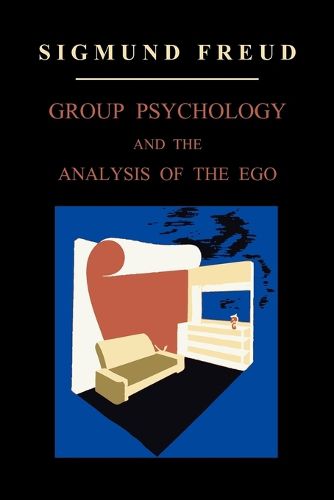Readings Newsletter
Become a Readings Member to make your shopping experience even easier.
Sign in or sign up for free!
You’re not far away from qualifying for FREE standard shipping within Australia
You’ve qualified for FREE standard shipping within Australia
The cart is loading…






2010 Reprint of 1922 edition. In the introduction to this important work, Freud makes the claim that group psychology is part of psychoanalysis. He proceeds to tackle a fundamental problem: What is the mental dynamic that holds together the individuals in a group, creates the group’s forms, ensures its continuity and stability, or causes its disappearance? Repeating a significant move in psychoanalysis, his abandonment of hypnosis, Freud proposed that the libido accounts for group psycho dynamics. He accomplished this epistemological operation in three chapters, borrowing from Gustave Le Bon and William McDougall to describe the prevalence of the primary processes in ephemeral groups. Freud refined his proposal by showing how two groups, the church and the army, can come apart-in their different ways-through the loss of libidinal bonds to the leader or among members, and how, in keeping with psychoanalytic dynamics, only the power of love is capable of overcoming the narcissism and hatred that distance us from one another.
$9.00 standard shipping within Australia
FREE standard shipping within Australia for orders over $100.00
Express & International shipping calculated at checkout
2010 Reprint of 1922 edition. In the introduction to this important work, Freud makes the claim that group psychology is part of psychoanalysis. He proceeds to tackle a fundamental problem: What is the mental dynamic that holds together the individuals in a group, creates the group’s forms, ensures its continuity and stability, or causes its disappearance? Repeating a significant move in psychoanalysis, his abandonment of hypnosis, Freud proposed that the libido accounts for group psycho dynamics. He accomplished this epistemological operation in three chapters, borrowing from Gustave Le Bon and William McDougall to describe the prevalence of the primary processes in ephemeral groups. Freud refined his proposal by showing how two groups, the church and the army, can come apart-in their different ways-through the loss of libidinal bonds to the leader or among members, and how, in keeping with psychoanalytic dynamics, only the power of love is capable of overcoming the narcissism and hatred that distance us from one another.